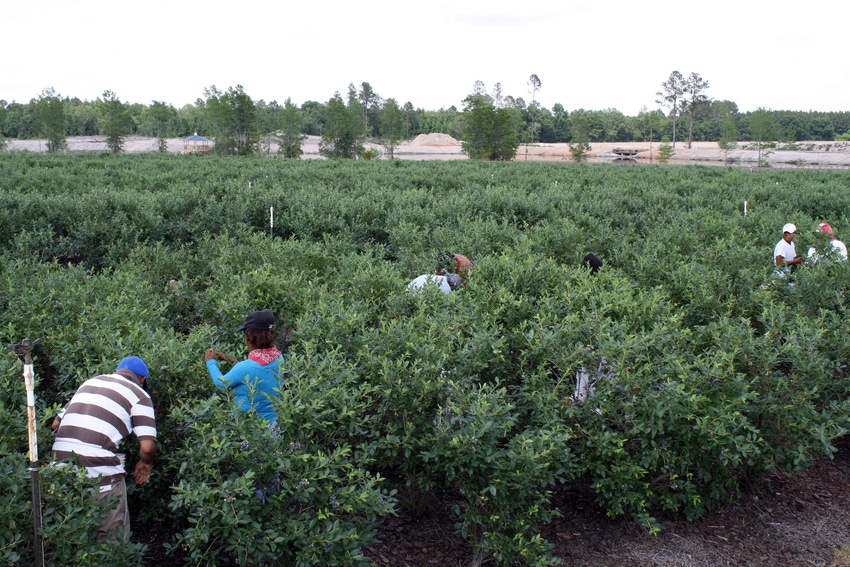May 12, 2016

The average migrant farm laborer is older, female and less likely to migrate, says a new study.
The study by Ball State University, located in Indiana, found farm workers who migrate and work on multiple farms during a growing season dropped from 55 percent in 1998 to 20 percent in 2009. The study was published in the American Journal of Agricultural Economics.
Workers who have higher incomes and live with a spouse and children in the U.S. are less likely to migrate, research found. In contrast, married workers who are not living with their families are more likely to migrate.
Agricultural labor markets have historically been characterized by both seasonal demand and migrant workers, said Maoyong Fan, an economics professor at Ball State and the study’s lead author. The workers — including many from Mexico — have followed crops by harvesting in the South in the first part of the agricultural season and then working northward.
“Despite a steady total agricultural workforce, substantial decreases in this stream of mobile workers — both documented and undocumented — since the late 1990s have contributed to farmers’ perceptions of labor shortages, which have been widely reported previously in the media,” he said. “Our research is the first study that shows that a true ‘labor shortage’ may be experienced by farmers despite stable worker totals.”
Fan said the study’s results also directly address a major concern that granting legal status to unauthorized agricultural workers.
“We also found that U.S. citizens and legal permanent residents were more likely to migrate than unauthorized workers during the 1998-2009 period,” Fan said. “Apparently, stricter border enforcement during this period made unauthorized workers less willing to migrate within the United States because they feared such a migration would raise the odds of being caught. A new earned legalization program for unauthorized agricultural workers is likely to increase their mobility and help ease the ‘labor shortage’ problem.”
About the Author(s)
You May Also Like






